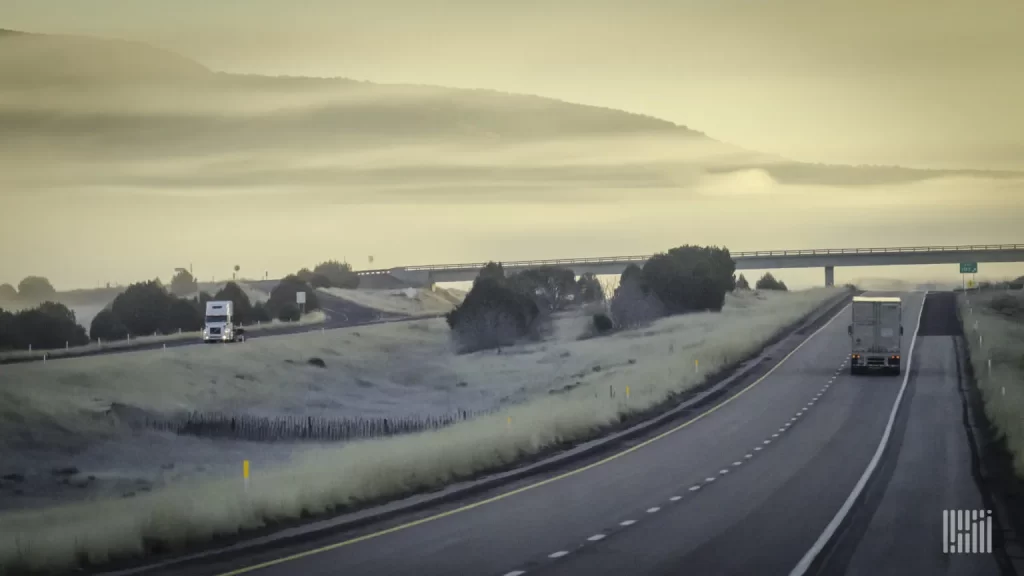October 7, 2021
It benefits to have a partner in safety

Understanding carriers’ business ‘and where they’re wanting to go gives us a huge advantage’
Reliance Partners’ professional safety team proactively helps motor carriers resolve compliance-related issues and, in turn, exceed risk-management expectations.
The rapidly growing commercial insurance agency goes above and beyond what’s expected of trucking insurance brokers, providing safety consulting on retainer, consisting of risk assessments, driver meetings, mock DOT audits and CSA score reviews and monitoring.
Developing a safety-first culture isn’t easy, but it is doable as long as you have the proper training and guidance. Motor carriers are leaving this tedious but necessary task to the experts, more specifically with Brian Runnels, Reliance Partners’ vice president of safety, and Robert Kaferle, the director of safety. The duo lead Reliance Partners’ newly expanded loss control and safety services team.
“Brian and myself bring two different things to the table,” Kaferle said. “He’s an extremely good networker; he is very personable and knowledgeable when it comes to the trucking side of things and helping carriers work through their safety issues. I do that as well, but my skills are more geared towards developing the processes and procedures internally, helping carriers from the ground up by improving their safety program.”
Reliance Partners aims to provide its clients access to industry-leading safety content, regardless of size. Since joining the team earlier this year, Kaferle has advanced these goals, ensuring that Reliance’s clients have access to its safety content, whether it’s receiving support from the loss control team or utilizing its online materials.
Despite one’s knowledge or scope of services, a safety expert is only as useful as his or her communication skills are strong. Kaferle said that many in the industry are well-rounded when it comes to regulations and how to address violations from an administrative perspective, but they lack the ability to communicate their insights.
“If you can’t get people to buy into your vision or get people to understand what you’re talking about, nor convey that they’re going to see results from what you’re telling them, then you’re not going to be successful,” Kaferle said. “Not only do you have to have the knowledge, but you have to communicate it in a way that is productive. That’s one of the things that I’ve been successful at in my safety career.”
The safety team works alongside each facet of the agency to ensure everyone’s on the same page, as Kaferle said insurance is all about mitigating risk in every way that you can. He explained that the overall safety of a trucking organization is impacted not only by driver recruiting but also by maintenance, dispatch and operations.
Kaferle joined Reliance Partners’ safety team earlier this year with a background in over-the-road trucking and held truckload carrier leadership roles in operations and human resources. Runnels joined over a year ago, bringing more than 20 years of long-haul trucking experience — and nearly 2.5 million safe-driving miles in his career.
“Robert has more of an operations background than I have, as he was a vice president of operations for a large trucking company for many years,” Runnels said. “I come more from a driver training and safety culture background, helping build good safety cultures within an organization starting at the driver level.”
Through onboarding, orientation and driver training, Runnels noted Reliance’s ability to improve the driver life cycle throughout employment. He spends a considerable amount of time visiting with clients nationwide to provide firsthand driver training and culture building. Based in Indiana, Runnels most recently met with companies in California.
Most of his clients fall within the 20- to 200-unit size, but regardless of size, they share similar issues. He said that it’s common for the owner, probably a driver themselves, to have a hard time managing the safety aspects of the organization.
“We can relate to them maybe more so than someone else just because we understand their plight,” Runnels said. “Getting the right people and culture in place can be overwhelming, so being able to understand their business and where they’re wanting to go gives us a huge advantage.”